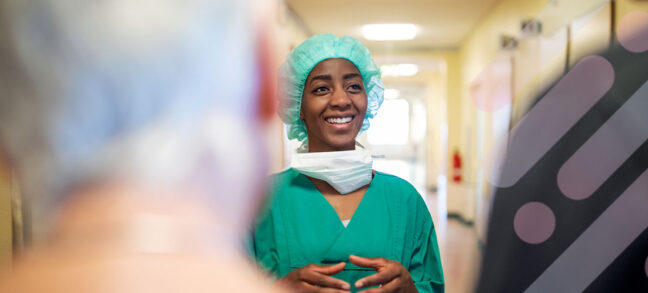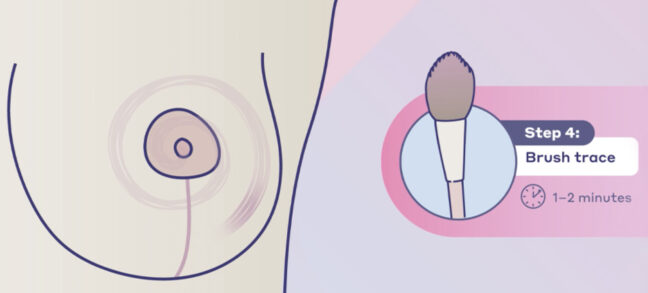Recovery after mastectomy and breast reconstruction is a short- and long-term process encompassing both physical and mental healing, and the potential to regain chest sensation after surgery with Resensation® looks a little different for everyone. That’s okay—this is your journey. You can celebrate hitting the big milestones, as well as take pride in the small steps along the way. Here’s some of what you can expect after your breast reconstruction with Resensation and beyond.
nerve regeneration after breast reconstruction with resensation takes time
“I had no idea there were so many everyday actions that could remind you of loss.” Patient Christine describes everything from getting dressed, to hugging her kids, to putting on her seatbelt feeling different after her mastectomy left her feeling numb. “When I was told about the Resensation surgery, it’s like my prayers had been answered.”
Resensation is performed at the same time as breast reconstruction surgery. It can be performed as part of the immediate reconstruction—at the same time as the mastectomy—or as a delayed or secondary reconstruction months or years after mastectomy in some cases.
Resensation has the potential to restore sensation and the rate at which sensation may return is different for everyone. Some may start to regain feeling after a couple months. Others may be on the slower end of the spectrum, with sensation gradually coming back over a couple of years. Feelings described as zaps and zings are common as sensation returns. Keep your doctor and care team informed of any changes and don’t skip follow-up appointments.
your health is also in your hands
It should go without saying—your doctors and care team have your best interest at heart. But never be afraid to keep asking questions even after your surgery is over. “Ask lots of questions no matter how stunned or scared you are,” says Gwynne, a Resensation patient. It’s common to worry that every ache and pain is something more. Fear of recurrence is normal.1 Help control any follow-up anxiety by writing down your questions before your appointment.
Share your concerns with your doctor and ask what you can do to better care for yourself. They’ll help you make a follow-up care plan that’s specific to your situation. Remember, you are your own best advocate.
your confidence will need healing
Accepting your new body takes time. Grieve the loss of what you had before, but don’t forget to celebrate what you have now. Your scars have a story. Let them be a symbol of your bravery and a reminder that you made it through. You are allowed to have good and bad days.
This is the perfect time to do something that makes you feel good. Get a mani-pedi, try a new haircut or update your wardrobe. Treat yourself to whatever reminds you of how beautiful you are. And remember, you are more than your cancer. Always.
don’t be afraid to ask for support
Breast cancer isn’t a journey meant to be experienced alone. But you can still feel that others don’t or can’t understand what you’ve been through. That’s when it’s vital to communicate what kind of support you need, whether it’s a listening ear or something more. Some find one-on-one therapy helpful, while others find that support groups provide more for them.
Discover the different ways you can find support here.
It’s normal to feel angry that you were put through this experience, and it’s normal to feel like life isn’t fair. Feel all the emotions your situation hands you, then make a plan to move through them.
Resensation Articles

How does mastectomy impact the nerves in the breast?
One sometimes overlooked aspect of mastectomy is its impact on nerves. Read what happens to nerves during mastectomy and explore…
Read More
What happens during implant breast reconstruction with Resensation®?
By repairing sensory nerves, Resensation® enables you to potentially regain sensation to your chest. Read how this procedure works during…
Read More
how resensation® helped Leanna feel secure in her family’s future
With Resensation®, Leanna can be there to watch her kids grow up—without losing the feeling of being whole.
Read More
post-surgery sensory retraining: instructions and video guide
Sensory retraining is a series of exercises designed to help you reconnect with your body after breast reconstruction with Resensation®.
Read More